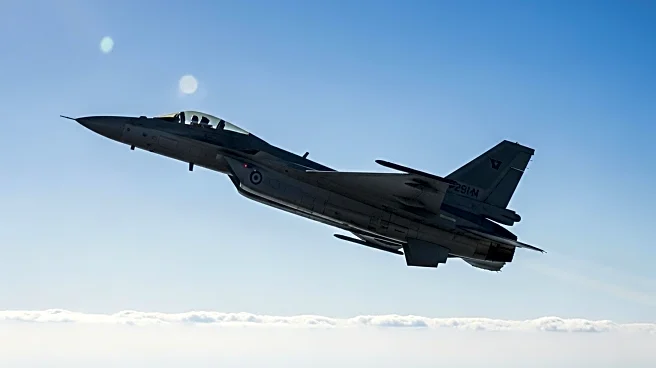What's Happening?
The European Commission has accused Russia of jamming the GPS signal of a plane carrying its President, Ursula von der Leyen, while she was en route to Bulgaria. The incident forced the plane to circle Plovdiv airport for an hour before landing safely. Bulgarian authorities suspect Russian interference, a claim that Russia has denied. This event occurred during von der Leyen's tour of EU countries bordering Russia and Belarus, aimed at promoting the EU's defense spending plan and expressing solidarity. The European Commission has reiterated its commitment to enhancing defense capabilities and supporting Ukraine.
Why It's Important?
This incident underscores the ongoing tensions between the European Union and Russia, particularly in the context of Russia's actions in Ukraine. The alleged GPS jamming highlights the vulnerabilities in aviation security and the potential for electronic warfare tactics to disrupt international travel. The European Commission's response, emphasizing increased defense capabilities, signals a continued commitment to countering Russian aggression. This development could lead to heightened security measures and further sanctions against Russia, impacting diplomatic relations and regional stability.
What's Next?
The European Commission is likely to pursue further investigations into the incident and may impose additional sanctions on entities involved in GPS signal disruption. The EU's commitment to ramping up defense capabilities suggests potential increases in defense spending and collaboration among member states. This incident may also prompt discussions on enhancing aviation security protocols to prevent similar occurrences in the future. Stakeholders, including EU member states and NATO allies, will likely monitor the situation closely and consider coordinated responses to deter further Russian interference.
Beyond the Headlines
The incident raises broader questions about the use of electronic warfare in modern conflicts and the ethical implications of targeting civilian aircraft. It also highlights the need for international cooperation in addressing cybersecurity threats and protecting critical infrastructure. The EU's response may set a precedent for how similar incidents are handled in the future, influencing global aviation security standards and diplomatic strategies.









